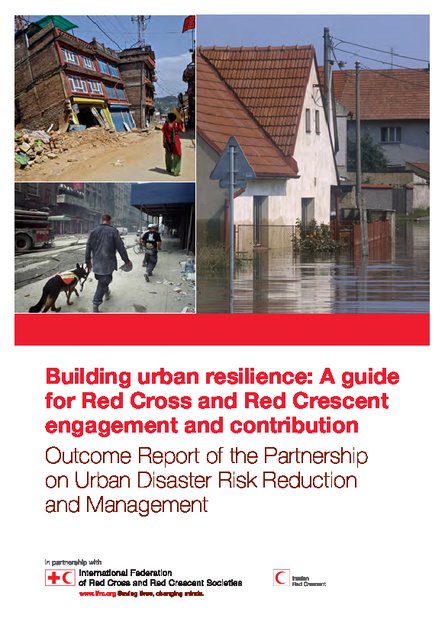
Cities and urban areas provide important opportunities for the development of communities and nations. But risks caused by rapid and often improper urbanization compounded by natural hazards create some of the major challenges in the 21st Century. It is estimated that by 2050 66 per cent of the world’s population will be urban, while rapid and unplanned urbanization will also continue to see a dramatic rise in informal settlements. Aside from the negative impacts of improper urbanization on socioeconomic development, the risks and humanitarian consequences of rapid urbanization are alarmingly increasing. Major disasters occurring in various parts of the world in the past decade have created more losses and damages in cities than in other areas. The International Federation of Red Cross and Red Crescent Societies (IFRC) and its members in 190 countries have always been present in cities to respond to crises and disasters and provide relief and humanitarian assistance. But rapid urbanization and the increasing complexity in urban contexts require better understanding of risk factors and sources of vulnerability and exploring innovative ways for effective disaster risk reduction and response and cooperation with other stakeholders. Developing community resilience in relation to disasters in cities has also been a new challenge for the Red Cross and Red Crescent Movement in view of the multi-faceted and new causes of vulnerability in urban environments.
Resource collections
- Evaluating humanitarian action
- UN Habitat - Urban Response Collection
- Urban Response - Urban Crisis Preparedness and Risk Reduction
- Urban Response Collection - Community Engagement and Social Cohesion
- Urban Response Collection - Economic Recovery
- Urban Response Collection - Environment and Climate Change
- Urban Response Collection - Housing, Land and Property
- Urban Response Collection - Urban Crisis Response, Recovery and Reconstruction
- Urban Response Collection - Urban Resilience